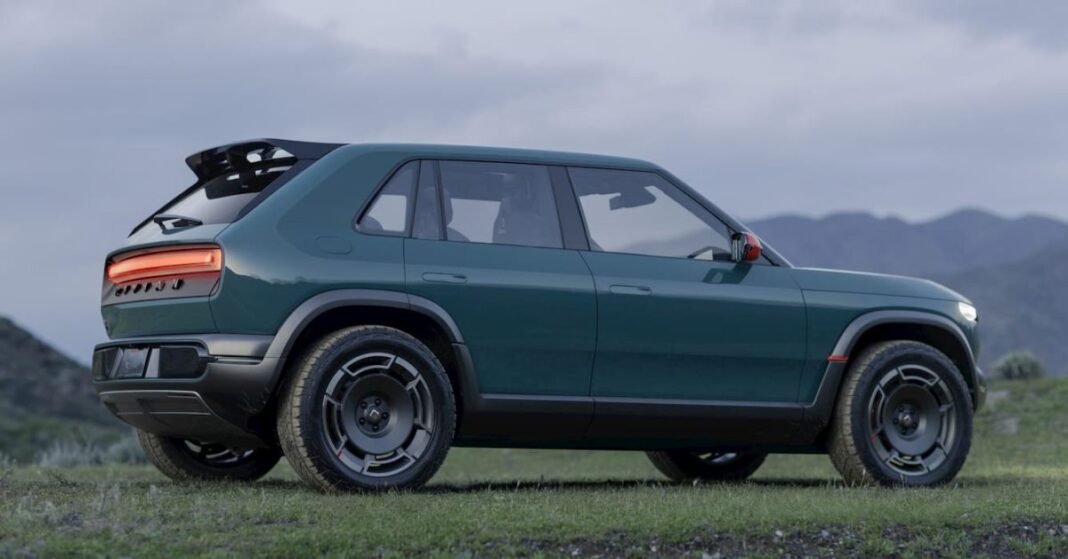Contents
- 1 China’s Dominance in the EV Market: Rivian CEO Highlights What the US Must Do to Keep Up
China’s Dominance in the EV Market: Rivian CEO Highlights What the US Must Do to Keep Up
As China emerges as a dominant force in the electric vehicle (EV) market, Rivian CEO RJ Scaringe discusses the trends driving this shift and what American automakers can learn to stay competitive.
In the ever-evolving world of electric vehicles, China has swiftly taken the lead in global EV sales, outpacing the United States significantly. During a recent discussion with Rishi Dhall, Vice President of NVIDIA’s automotive division, Rivian CEO RJ Scaringe shed light on this phenomenon, explaining why China’s aggressive expansion into the EV sector is reshaping automotive dynamics. With EVs comprising an impressive 45% of all car sales in China last year, Scaringe emphasized the challenges and opportunities that lie ahead for American brands as they grapple with their significantly lower adoption rates.
China’s EV Market: A powerhouse of Innovation and Sales
- In 2023, electric vehicles accounted for 45% of all car sales in China.
- Less than 8% of new vehicle sales in the US were electric in the same period.
- Rivian’s CEO notes that China is “light-years ahead” in battery technology and vehicle pricing.
Understanding the Leadership Gap
Scaringe explained that a primary factor contributing to China’s rapid EV adoption is the overwhelming variety of options available to consumers. In stark contrast, he pointed out that American buyers have limited choices, with only a few compelling models priced under $50,000, primarily dominated by Tesla’s Model Y and Model 3. This narrow selection has resulted in Tesla capturing a massive portion of the US market, leaving many buyers in search of more diverse EV options.
“We do not have enough choices in America,” Scaringe noted, highlighting the necessity for broader offerings to keep pace with the burgeoning Chinese market.
The Role of Rivian in Expanding EV Choices
As Rivian prepares for the launch of its new model, the R2—a midsize SUV priced around $45,000—Scaringe conveyed his optimism regarding the company’s ability to bridge the gap in affordable EV alternatives. The R2 is expected to capture the essence of Rivian’s higher-end models while being more accessible to a wider audience. “R2 encapsulates the magic of Rivian’s technology at a price point that more consumers can afford,” he stated.
Strategic Expansion Plans
Rivian is also making significant strides in expanding its production capabilities to increase output. The company is investing heavily in its manufacturing facility located in Normal, IL, which it anticipates will ramp up production capacity from 150,000 to approximately 215,000 vehicles annually by 2026. Furthermore, the launch of a new EV plant in Georgia is projected to add an additional 400,000 units to their annual production capacity once operational in 2028.
- Rivian aims to produce 215,000 vehicles annually by enhancing its Illinois plant.
- A future facility in Georgia is expected to increase production capacity by 400,000 vehicles.
Technological Integration: Building a Competitive Edge
Scaringe emphasized the importance of technology integration in maintaining a competitive edge in the EV landscape. Many Western automakers currently face challenges updating and synchronizing the various sensors and software sourced from multiple suppliers. In contrast, Rivian and Tesla have redefined the manufacturing process by internally integrating their technology, a strategy Scaringe believes is crucial to stand against competitors in China that are leveraging vertically integrated tech stacks.
Collaborations and Future Prospects
Rivian is not navigating this landscape alone; the company has joined forces with automotive giant Volkswagen through a significant partnership worth up to $5.8 billion. The collaboration is centered around developing next-generation EVs and emphasizes the necessity for a well-integrated technological plumbing system within both companies to achieve seamless operations.
As Rivian eyes expansion into international markets, especially Europe, the company recognizes that scaling up production and enhancing vehicle features will be essential. Scaringe encapsulated this sentiment by arguing, “To compete effectively, we must not only expand our vehicle lineup but also ensure we have robust technology beneath the hood.”
Looking Ahead: The Future of EVs in America
While Rivian’s upcoming R2 model shows promise, the CEO insists that the success of this vehicle is only a piece of the larger puzzle—America needs numerous compelling EV options on the market to rival China’s extensive offerings. “We need R2 to succeed, and ultimately, we need multiple other choices for consumers to genuinely expand EV penetration in the US,” he affirmed.
As the automotive industry continues to shift toward sustainable practices, the stakes are higher than ever. With current trends indicating that consumer interest in EVs is at an all-time high, American manufacturers must act swiftly to regain lost ground against their Chinese counterparts.
Conclusion
As the EV landscape continually transforms, American companies like Rivian are positioning themselves for success by enhancing their offerings and integrating cutting-edge technology. Rivian’s expansive plans demonstrate a commitment to not only surviving but thriving in a market increasingly dominated by China. Nevertheless, a concerted effort to provide diverse, affordable, and accessible EV choices is crucial for the US automotive scene to keep pace with innovation and consumer demand.
Keywords: China EV market, Rivian, RJ Scaringe, electric vehicles, US EV sales, technology integration, Rivian R2, Volkswagen partnership, electric vehicle production.
Hashtags: #ElectricVehicles #Rivian #EVMarket #ChinaDominance #SustainableDriving #AutomotiveInnovation #FutureOfTransport
Source link



